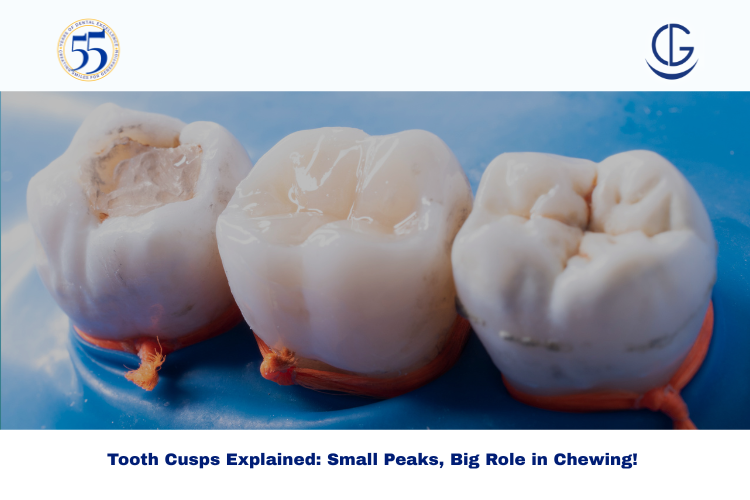Schedule Appointment



Have you ever noticed the little peaks and ridges on your back teeth? Those raised points are called tooth cusps, and they play a surprisingly big role in how well you chew your food. At Dr. Gowds Dental Hospital in Hyderabad, we often explain to patients that healthy cusps are essential for biting, grinding, and even protecting your jaw from extra stress.
While cusps are small, problems with them can lead to discomfort, difficulty chewing, and long-term oral health issues. Let’s break down what they are, why they matter, and how to keep them in good shape.
A tooth cusp is a pointed or rounded elevation on the chewing surface of a tooth. You’ll mostly see them on premolars and molars, though canines also have a single strong cusp.
Think of cusps as the “tools” of your teeth—they’re shaped differently depending on the job they need to do.
Tooth cusps may look like simple ridges, but they serve several key purposes:
Without healthy cusps, chewing becomes less effective, which can affect both comfort and nutrition.
Like any other part of your teeth, cusps can wear down or get damaged. Some common issues include:
Biting on hard foods like nuts, candies, or ice can crack a tooth cusp. This often leads to sharp pain while chewing and increased sensitivity.
People who grind their teeth (a condition called bruxism) often wear down cusps. Over time, this flattens the chewing surface and makes eating less efficient.
Since cusps are exposed points, food and plaque can easily settle around them. If not cleaned properly, cavities can develop right on or near the cusp.
Sometimes cusps don’t line up properly with the opposing teeth. This can cause uneven wear, jaw discomfort, or even cracked enamel.
The treatment depends on the type and severity of the problem:
👉 If you’re dealing with constant pain or a broken cusp, it’s best to get professional help. At Dr. Gowds Dental Hospital, our dentists in Hyderabad carefully assess cusp damage and recommend the right treatment to restore function and comfort.
A little daily care goes a long way in keeping your cusps strong:
Mild discomfort may pass, but don’t ignore ongoing pain or sensitivity around a tooth cusp. Sometimes what seems like a minor chip could actually expose deeper layers of the tooth.
If you’re in Hyderabad, visiting specialists at Dr. Gowds Dental Hospital ensures expert care before the problem gets worse.
A tooth cusp may be small, but it’s vital for chewing, speaking, and protecting your bite. Damage to cusps—whether through fractures, wear, or cavities—can make eating uncomfortable and may harm your long-term oral health.
The best approach is prevention: good hygiene, avoiding harmful habits, and getting regular check-ups. If problems do arise, don’t wait—professional treatment restores function and protects your smile. For expert care, the team at Dr. Gowds Dental Hospital in Hyderabad is always here to help.
A tooth cusp helps cut, tear, and grind food so it can be swallowed and digested more easily.
Yes. Depending on the damage, your dentist may repair it with bonding, a filling, or a crown.
Avoid chewing very hard foods, wear a night guard if you grind your teeth, and see your dentist for regular check-ups.
Not always, but ongoing pain or sensitivity often signals a crack, cavity, or misalignment. A dentist should check it.
At Dr. Gowds Dental Hospital, patients receive specialized care for tooth cusp fractures, wear, and related dental issues.